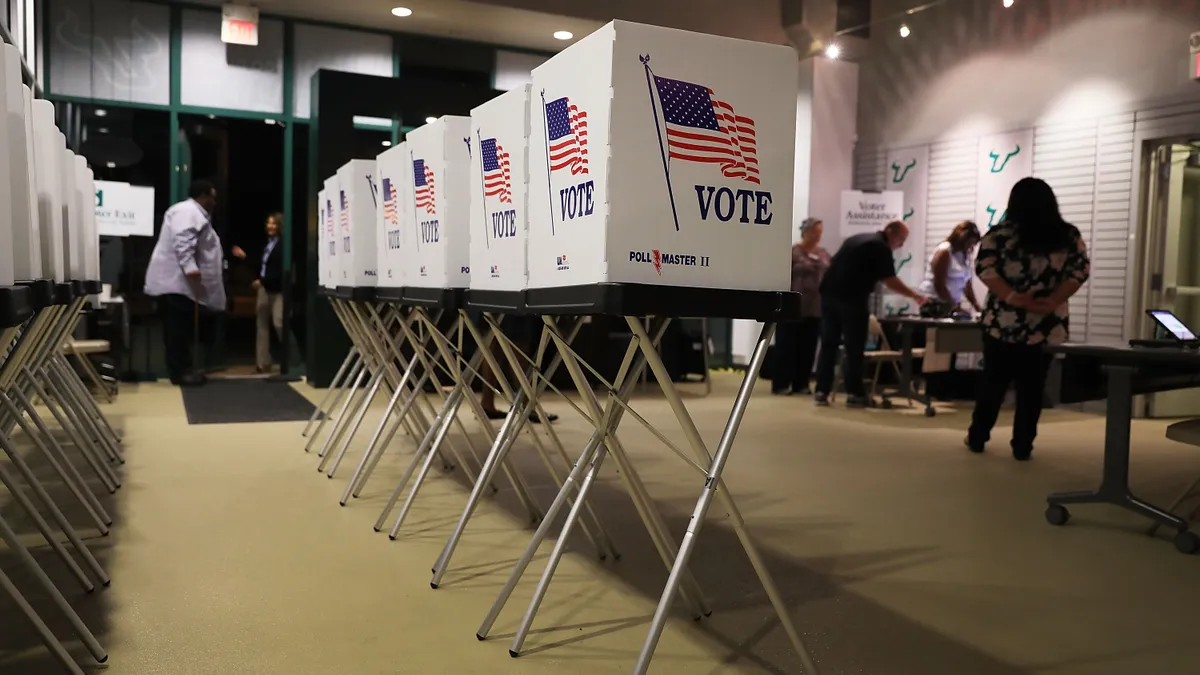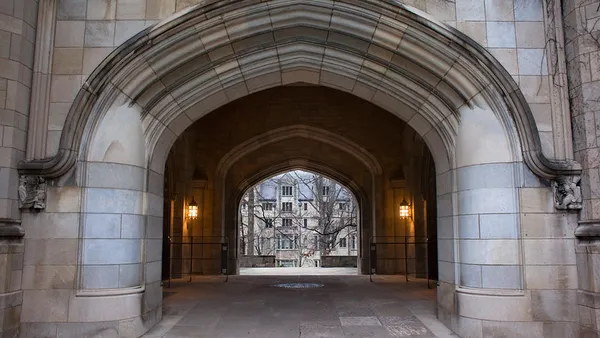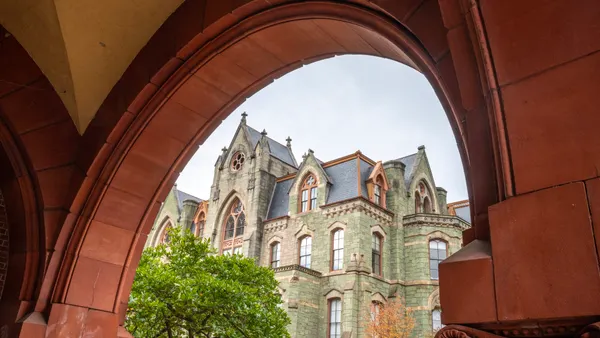Dive Brief:
- More than a quarter of students, 28%, said they ruled out a college due to the politics of the state where it is located, according to a new survey from education consultancy Art & Science Group.
- Students who identified as liberal, conservative or moderate had similar likelihoods of labeling one or more states as noncontenders, though researchers noted that liberal students typically listed more concerns than conservative students.
- Among the students who excluded states from their search, 64% did so at the start of their college selection process.
Dive Insight:
Both conservative and liberal students are increasingly citing sociopolitical reasons when deciding to ignore certain states during their college search.
"We see this trend among students on both sides of the aisle and suspect it may reflect increasing intensity around contentious topics as the election approaches," researchers said, adding that the uptick is more notable among liberal students.
In one case, conservative and liberal students cited the same issue, LGBTQ+ rights, in their decision-making processes but disagreed about how states should handle it.
Nearly three-quarters of liberal students who excluded states did so because they believed their LGBTQ+ laws were too conservative. And roughly 4 in 10 conservative students ruled out states over LGBTQ+ laws they deemed too liberal.
However, researchers found that liberal students were more likely to list detailed policy concerns when deciding to excise a state from their college search.
"Conservative-leaning students are most likely to rule out states for the broad concern that they are 'too Democratic,'" they added.
About three-quarters of liberal students expressed concern over reproductive health and abortion rights when deciding to avoid certain states, making it their most cited factor. More than half of liberal students pointed to lenient gun laws and a lack of concern about racial equity.
Liberal students are also increasingly concerned about voting access. Roughly one-third who excluded a state from their search said they did so because it would be too hard to register to vote. That's compared to roughly 10% who said the same in winter 2023.
Several states — including swing districts Ohio and Arizona — have introduced laws restricting voting access since the last presidential election.
While the survey did not name any states when discussing specific policy issues, it did ask students about where they were likely to avoid. Liberal students are more likely to rule out Texas, Florida, Arkansas and Tennessee, while conservative students are more likely to rule out New York and California.
From April to June, researchers polled 726 high school seniors who planned to attend a four-year college full time in fall 2024. Researchers weighted responses by income, race, region and gender to reflect the national college-going population.
While the Art & Science Group's sample size is relatively small, it echoes findings from other surveys of prospective college applicants.
Almost half of high school students, 47%, reported researching the political climate of the states and college policies and political affiliations during their search process, according to 2024 survey data from Carnegie, a higher ed marketing firm. And 69% of respondents said that local laws on issues like reproductive health and diversity, equity and inclusion could prevent them from attending their dream college.














